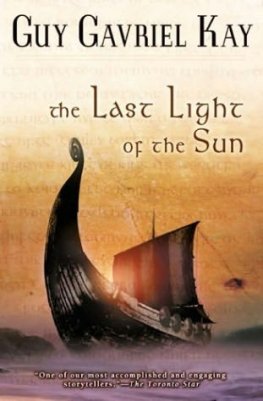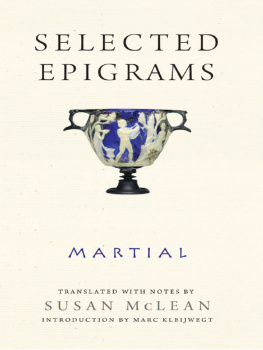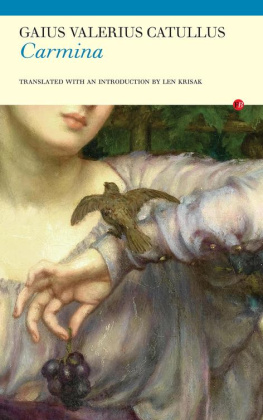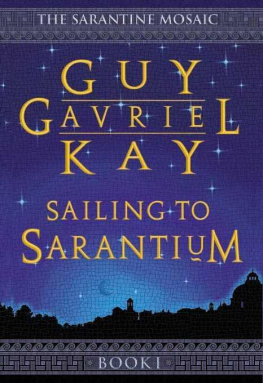
Guy Gavriel Kay
SAILING TO SARANTIUM
For my sons,
Samuel Alexander and Matthew Tyler, with love, as I watch them
"fashion everything
From nothing every day, and teach
The morning stars to sing."
I imagine it is obvious from the tide of this work, but I owe a debt of inspiration to William Butler Yeats, whose meditations in poetry and prose on the mysteries of Byzantium led me there and gave me a number of underlying motifs along with a sense that imagination and history would be at home together in this milieu.
I have long believed that to do a variation in fiction upon a given period, one must first try to grasp as much as possible about that period. Byzantium is well served by its historians, fractious as they might be amongst each other. I have been deeply enlightened and focused by their writing and-via electronic mail-by personal communications and generous encouragement offered by many scholars. It hardly needs to be stressed, I hope, that those people I name here cannot remotely bear any responsibility for errors or deliberate alterations made in what is essentially a fantasy upon themes of Byzantium.
I am happy to record the great assistance I have received from the work of Alan Cameron on chariot racing and the Hippodrome factions; Rossi, Nordhagen, and L'Orange on mosaics; Lionel Casson on travel in the ancient world; Robert Browning, particularly on Justinian and Theodora; Warren Treadgold on the military; David Talbot Rice, Stephen Runciman,
Gervase Mathew and Ernst Kitzinger on Byzantine aesthetics; and the broader histories of Cyril Mango, H.W Haussig, Mark Whittow, Averil Cameron and G. Ostrogorsky. I should also acknowledge the aid and stimulation I received from participating in the lively and usefully disputatious scholarly mailing lists on the Internet relating to Byzantium and Late Antiquity. My research methods will never be the same.
On a more personal level, Rex Kay remains my first and most astringent reader, Martin Springett brought his considerable skills to preparing the map, and Meg Masters, my Canadian editor, has been a calm, deeply valued presence for four books now. Linda McKnight and Anthea Morton-Saner in Toronto and London are sustaining friends as well as canny agents, and a sometimes demanding author is deeply aware of both of these elements. My mother guided me to books as a child and then to the belief I could write my own. She still does that. And my wife creates a space into which the words and stories can come. If I say I am grateful it grievously understates the truth.
and we knew not whether we were in heaven or on earth. For on earth there is no such splendour or such beauty, and we were at a loss how to describe it. We know only that God dwells there among men, and their service is fairer than the ceremonies of other nations. For we cannot forget that beauty.
Chronicle of the Journey of Vladimir, Grand Prince of Kiev, to Constantinople


Thunderstorms were common in Sarantium on midsummer nights, sufficiendy so to make plausible the oft-repeated tale that the Emperor Apius passed to the god in the midst of a towering storm, with lightning flashing and rolls of thunder besieging the Holy City. Even Pertennius of Eubulus, writing only twenty years after, told the story this way, adding a statue of the Emperor toppling before the bronze gates to the Imperial Precinct and an oak tree split asunder just outside the landward walls. Writers of history often seek the dramatic over the truth. It is a failing of the profession.
In fact, on the night Apius breathed his last in the Porphyry Room of the Attenine Palace there was no rain in the City. An occasional flash of lightning had been seen and one or two growls of thunder heard earlier in the evening, well north of Sarantium, towards the grainlands of Trake-sia. Given the events that followed, that northern direction might have been seen as portent enough.
The Emperor had no living sons, and his three nephews had rather spectacularly failed a test of their worthiness less than a year before and had suffered appropriate consequences. There was, as a result, no Emperor Designate in Sarantium when Apius heard-or did not hear-as the last words of his long life, the inward voice of the god saying to him alone, "Uncrown, the Lord of Emperors awaits you now."
The three men who entered the Porphyry Room in the still-cool hour before dawn were each acutely aware of a dangerously unstable situation. Gesius the eunuch, Chancellor of the Imperial Court, pressed his long, thin fingers together piously, and then knelt stiffly to kiss the dead Emperor's bare feet. So, too, after him, did Adrastus, Master of Offices, who commanded the civil service and administration, and Valerius, Count of the Excubitors, the Imperial Guard.
"The Senate must be summoned," murmured Gesius in his papery voice. "They will go into session immediately."
"Immediately," agreed Adrastus, fastidiously straightening the collar of his ankle-length tunic as he rose. "And the Patriarch must begin the Rites of Mourning."
"Order," said Valerius in soldier's tones, "will be preserved in the City. I undertake as much."
The other two looked at him. "Of course," said Adrastus, delicately. He smoothed his neat beard. Preserving order was the only reason Valerius had for being in the room just now, one of the first to learn the lamentable situation. His remarks were a shade emphatic.
The army was primarily east and north at the time, a large element near Eubulus on the current Bassanid border, and another, mostly mercenaries, defending the open spaces of Trakesia from the barbarian incursions of the Karchites and the Vrachae, both of whom had been quiescent of late. The strategos of either military contingent could become a decisive factor-or an Emperor-if the Senate delayed.
The Senate was an ineffectual, dithering body of frightened men. It was likely to delay unless given extremely clear guidance. This, too, the three officials in the room with the dead man knew very well.
"I shall," said Gesius casually, "make arrangements to have the noble families apprised. They will want to pay their respects."
"Naturally," said Adrastus. "Especially the Daleinoi. I understand Flav-ius Daleinus returned to the City only two days ago."
The eunuch was too experienced a man to actually flush.
Valerius had already turned for the doorway. "Deal with the nobility as you see fit," he said over his shoulder. "But there are five hundred thousand people in the City who will fear the wrath of Holy Jad descending upon a leaderless Empire when they hear of this death. They are my concern. I will send word to the Urban Prefect to ready his own men. Be thankful there was no thunderstorm in the night."
He left the room, hard-striding on the mosaic floors, burly-shouldered, still vigorous in his sixtieth year. The other two looked at each other. Adrastus broke the shared gaze, glancing away at the dead man in the magnificent bed, and at the jewelled bird on its silver bough beside that bed. Neither man spoke.
Outside the Attenine Palace, Valerius paused in the gardens of the Imperial Precinct only long enough to spit into the bushes and note that it was still some time before the sunrise invocation. The white moon was over the water. The dawn wind was west; he could hear the sea, smell salt on the breeze amid the scent of summer flowers and cedars.
Next page




















